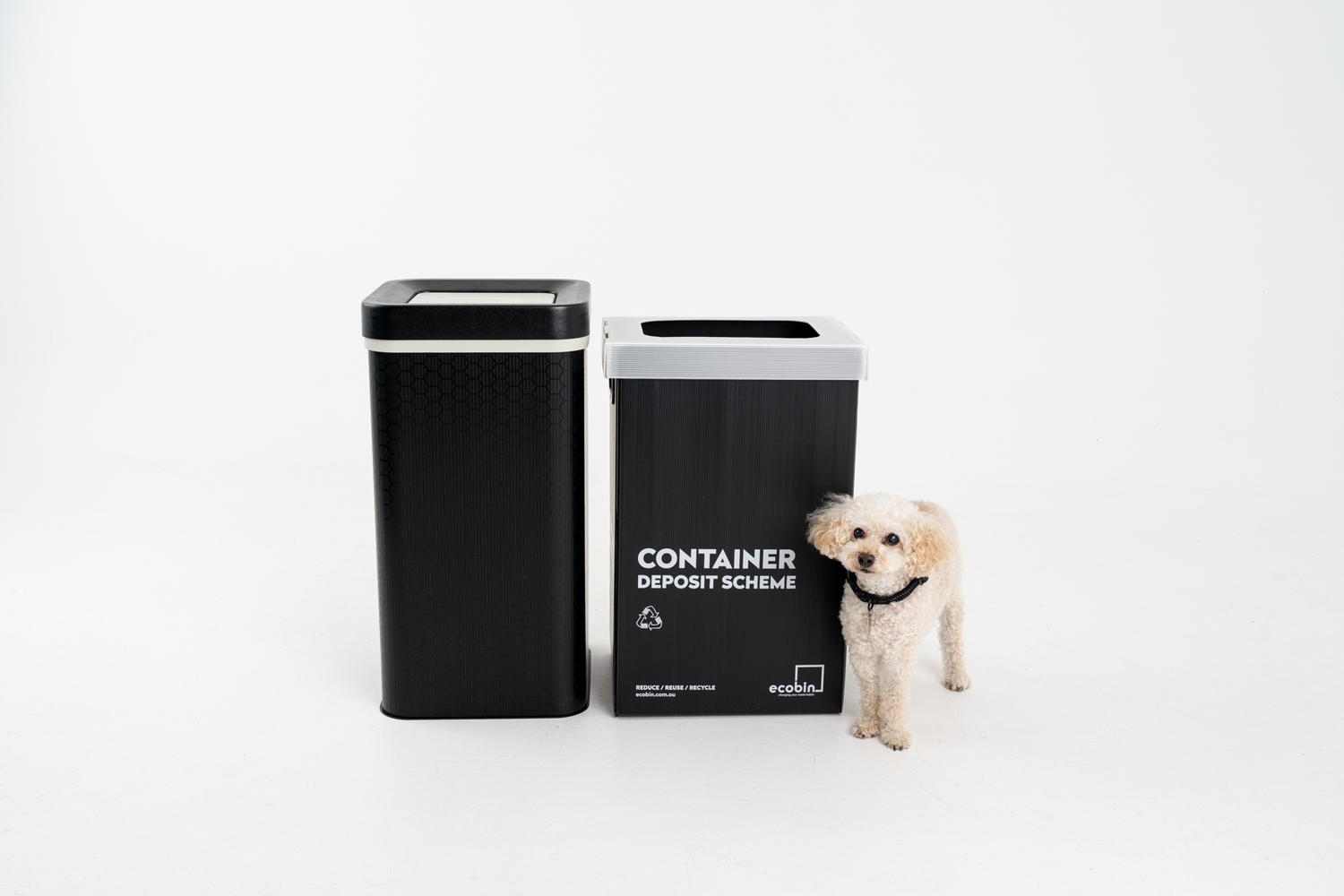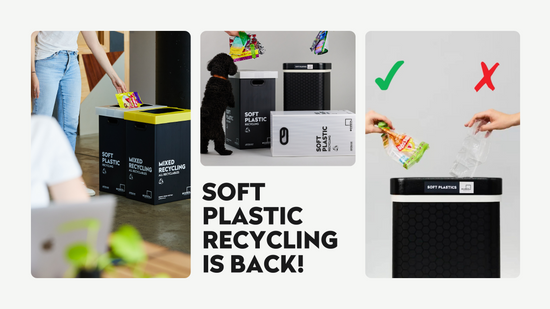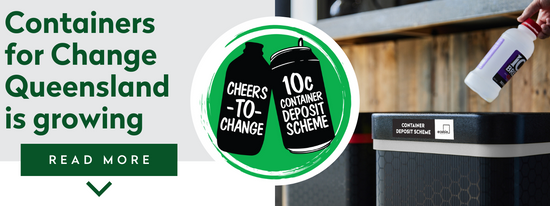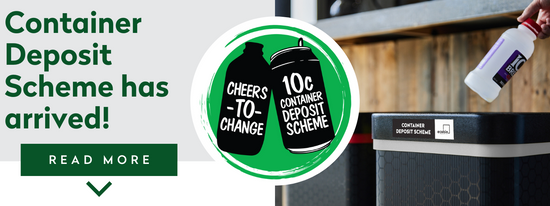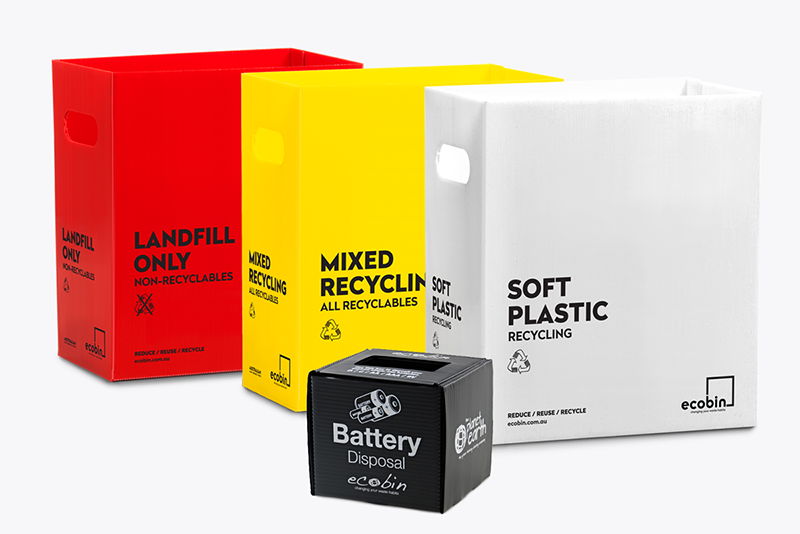
Ecobin has changed the recycling game forever
Ecobin is a sustainable business based in Australia that is revolutionising the way Australians deal with waste.
We've done this by creating a range of innovative recycling bins. Ecobin is a pioneer in the field of sustainability and has been actively helping to foster and grow a culture of environmental responsibility in Australia since 2008.
By creating a simple, highly-visible, colour-coded system for different streams of waste, Ecobin CEO & Founder John Engelander gives us the ability to separate different streams of waste, reducing landfill as much as possible.
So, let's take a look at how at Ecobin we continue to work to revolutionise recycling bins and how we deal with our waste in Australia.
The need for recycling bins
Recycling bins are essential due to the increasing waste produced by Australians. As a country, Australia has a high waste production rate, and a significant amount of this waste ends up in landfill.
Shockingly, the average Australian produces about 2,000kg of waste per year.
The good news is we can work together to significantly reduce this waste, by separating our waste and disposing of it using appropriate recycling facilities.
The end game with any recycling bin system is to limit what ends up in landfill and all of the associated problems that can cause.
The problem with traditional rubbish bins
Traditional rubbish bins don't allow us to separate the different types of waste produced in Australia. This makes it difficult for individuals to separate and then dispose of their waste in an environmentally responsible manner. Also, traditional rubbish bins don't promote recycling and sustainability.
The innovation of Ecobin
Ecobin has created a range of recycling bins for the different types of waste produced in Australia. Each bin is colour coded, so it's immediately obvious what it's to be used for. Ecobin's recycling bin range includes:
- Green Ecobin - organic
- Blue Ecobin - paper and cardboard
- Purple Ecobin - glass
- Red Ecobin - landfill
The impact of Ecobin
Ecobin has had a significant impact on the way Australians deal with their waste, and has helped to continue the conversation around environmental responsibility by promoting recycling and sustainability. We've made it easier for individuals and businesses to dispose of their waste in an environmentally responsible manner, reducing the amount of waste sent to landfill.
Or if you'd like to learn more from one of our friendly staff, you can check out our contact page here.
TOP 5 TIPS FOR ECO-FRIENDLY GROCERY SHOPPING
The kids are grabbing your legs, screaming, knocking items off the shelves. You have 10 minutes left on your lunchbreak and need to rush back to work. Isles upon isles of goodness staring at you, overwhelming with all their choices. Grocery shopping can be a little overwhelming at times, and you might just want a quick, easy shop. However, this can lead to forgetting about the planet. Shopping is overrun with unnecessary wastage in the name of convenience. Take a breath, clear your thoughts, and reflect how to help the earth that has given us so much. The Ecobin team would love to give you some handy tips on how to reduce your wastage when shopping so that your trip can be as easy and environmentally-friendly as possible!
Tip 1 – Sign me up!
Do you love a good online deal as much as we do? Well, some great brands are offering subscription and delivery options to save you travelling to the store. Farmers Pick is a great option for sustainable produce. With a simple subscription, you can get fresh produce delivered right to your door! Not only is this cheaper and more convenient than travelling to the shops, but it is also better for the environment too! Farmers Pick also uses produces that doesn’t necessarily conform to classic beauty standards but is still delicious nonetheless! Through using this type of food delivery, you are helping prevent imperfect produce being discarded unnecessarily. Using subscription methods can also reduce your likelihood of impulse buying and having food wastage. Great news – these handy subscriptions are not limited to just food! You can also get your eco-friendly toilet paper through Who Gives A Crap, and your body care products through Zero Co. Never running out of products and you don’t have to leave your house? What’s not to love?
Tip 2 – The bag brawl
Households generate 47% of plastic waste in Australia. Whilst we usually aim for the highest score possible, this time we wouldn’t mind dropping a few points. So, let’s aim for a score our parents can proudly put on the fridge and reduce Australia’s plastic waste. Grossed out at the thought of putting your raw produce in the public trolley and conveyor belt? Well, you can be hygienic and eco-friendly! Be a peach and bring your own reusable mesh bags to carry your fruit and veggies instead of using store-provided plastic wastage. Sick of your ice cream melting before you get home? Well, did you know that you can now purchase reusable shopping bags that have special cooler compartments for your fridge and freezer items? Talk about innovative!
Tip 3 – Bulk Up
For non-perishable items, its not a bad idea to buy in bulk. Not only is this usually more cost-effective, but it can also reduce the amount of packaging wasted. Large items use less packaging than individually wrapped items, so why not buy a little more and waste a little less?
Tip 4 – Cars are man’s best friend, no wait that’s dogs!
Driving can be relaxing and convenient, but have you ever stopped to consider the effect on the planet? We might be racing to go outside, but light vehicles (cars, SUVS, etc) contribute to 10% of greenhouse gas emissions in Australia. Meal-planning can help reduce your number of grocery store trips, and thus Australia’s emissions. Walking to the shops is another great way to reduce emissions. The planet wants to breathe easy, so let’s help it do so!
Tip 5 – Reject that receipt
Ink and paper can produce some amazing masterpieces, but your grocery store receipt is no Picasso. So, help reduce the 2.2 million tonnes of paper waste that households produce a year and ask your cashier not to print your receipt. If you’re reeling at the thought of not having a receipt, many places offer to email your receipt instead. There is always a way to reduce our paper usage and save our precious trees. We hope these tips have helped ease your grocery store stress and have shown you how easy eco-friendly shopping really is!
